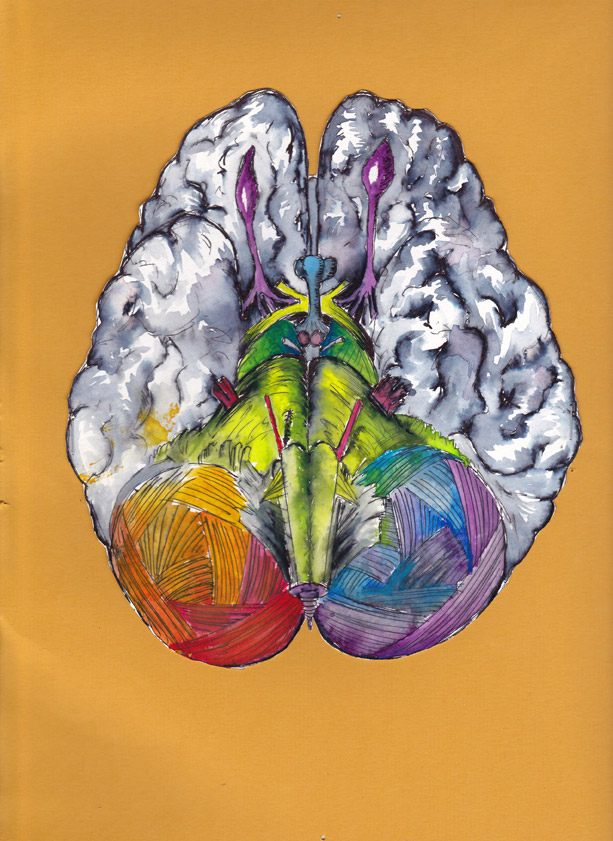McGill University reaffirmed itself as one of the top neuroscience research centres in the world when it won an $84 million federal grant to fund the innovative Healthy Brains for Healthy Lives (HBFHL) program for the next seven years. Canada First Excellence Research Fund (CFERF) provided the grant as part of a federal science funding package that only awarded money to the top university programs in their field globally. Through evaluation methods such as academic citations, McGill was able to prove that it is in the top one per cent of research institutions in the field of neuroscience.
The HBFHL program is another chapter in McGill’s legacy of research and innovation in the field of neuroscience, dating back to Dr. Wilder Penfield and his contribution to the field of brain surgery. Professor Alan Evans, the James McGill Professor of Neurology, Psychiatry, and Biomedical engineering, will lead the HBFHL. The program is an ambitious research and innovation-focused program that aims to position McGill as the most prominent university for brain research in Canada and the world. It seeks to develop treatments for brain diseases, such as Alzheimer’s and Parkinson’s, as well as to make an impact on public policy and the framework for understanding brain health in Canada.
“In the last two decades we have witnessed a dramatic change in the conduct of neuroscience and the study of the brain,” Evans wrote in a press release. “In neuroscience, the information revolution has profoundly changed the way we collect and analyze a vast amount of information [….] We can now use powerful analytics to reveal subtle aspects of the individual brain, its genetics, how the environment shapes those genetics, and how the brain develops through life.”
The program will be enacted on a national scale using an interdisciplinary approach that integrates fields such as social science and computational science from the outset. This is important for translating the research and clinical work into the public domain and drafting public policy on brain health.
“What is unique about the Healthy Brains for Healthy Lives initiative is that it will use neuroinformatics to help identify and refine patient groups while working with educators, social scientists, and policymakers to move this knowledge quickly and efficiently into practice,” Rosie Goldstein, Vice-Principal Research and Innovation, said. “The primary goal of having such strong collaborations across disciplines will be the creation of a new, widely disseminated Canadian Framework for Brain Health that will then bring together these evidence-based clinical best practices, guidelines, and policies for treating and preventing neurological diseases and disorders.”
Furthermore, the HBFHL program is a huge collaborative effort itself, bringing together over 1,500 scientists, clinicians, graduate students, and postdoctoral fellows to solve problems to develop cutting-edge treatments for brain disorders. McGill is working directly with Western University—which received $66 million in grant money—and teaming up with various hospitals in the McGill network, such as The Douglas Mental Health University Research Institute, as well as other institutions from across Canada.
“The HBFHL will strengthen our international presence,” Evans said. “Neuroscience has become a global network and Canada is very much a hub in that network.”
Part of the federal funding will go towards graduate and post-doctoral students’ research, salary support, and travel for presentations and collaborations. The grant will also help fund opportunities for students to do summer research and practical training under the supervision of McGill researchers in neuroscience.
“A key aspect of the HBHL program will be new multidisciplinary training clusters for students and postdocs, and a 20% increase in the number of McGill students and postdoctoral fellows working in areas related to HBHL by 2023,” Goldstein said.
“Students will have access to research exchange programs at Western University and Universite de Montreal, both of which have CFREF-funded projects that include collaborative projects with McGill, as well as some of the world’s top Neuroscience Centres, including Imperial College in London, Oxford University Neuroscience, the Neuroscience Centre of Zurich, and Kyoto University.
We encourage students to reach out to their advisors and professors to find out more about research programs funded by HBHL as they are announced in the coming months and years. There will be numerous opportunities to participate in Healthy Brains for Healthy Lives as a student researcher.”








